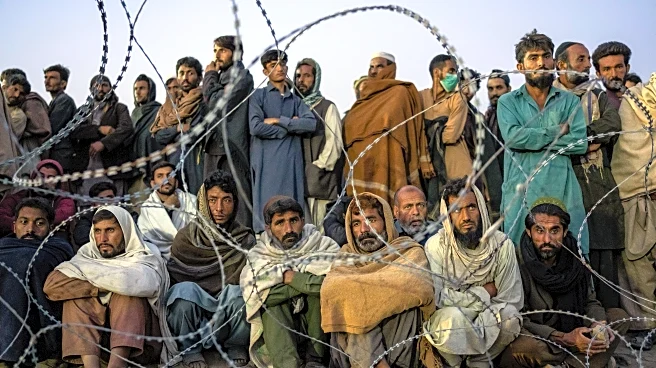Rapid Read • 8 min read
The U.S. Department of Agriculture (USDA) has significantly reduced eligibility for the Rural Energy for America Program (REAP), impacting family farms and rural businesses that rely on this program for clean energy projects. Historically, REAP has funded thousands of projects, contributing billions to rural economic development. In response to the USDA's decision, states, landowners, and bipartisan leaders are increasingly turning to community solar projects as alternative solutions. These projects allow farmers to lease portions of their land for solar production while continuing agricultural activities, providing a means to supplement farm income and stabilize against market volatility. Community solar is gaining traction as it combines clean energy production with traditional farming, supporting local economies and maintaining active farmland.
AD
The reduction in REAP funding by the USDA could have significant implications for rural economies and the clean energy sector. Family farms and rural businesses that previously benefited from REAP may face financial challenges, potentially affecting their sustainability and growth. Community solar initiatives offer a viable alternative, providing farmers with the flexibility to generate additional income and contribute to clean energy goals. This shift could lead to increased private investment in solar projects, fostering innovation and economic resilience in rural areas. The transition to community solar may also influence policy discussions on energy independence and rural development.
As community solar projects gain momentum, stakeholders including state governments, rural communities, and private investors are likely to explore further opportunities to expand these initiatives. The success of community solar could prompt legislative actions to support distributed energy solutions and enhance rural economic development. Additionally, farmers and landowners may increasingly advocate for policies that provide more autonomy and financial incentives for clean energy projects, potentially influencing future USDA decisions.
The shift from REAP to community solar highlights broader trends in energy policy and rural development. It underscores the growing importance of decentralized energy solutions and the role of private capital in driving clean energy adoption. This development may also spark discussions on the balance between federal support and private initiatives in achieving sustainable energy goals, as well as the ethical considerations of land use and energy production.
AD
More Stories You Might Enjoy











